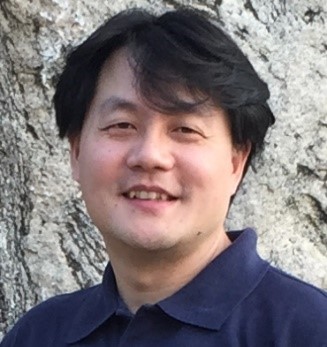Chengkuo (Vincent) Lee
Self-sustained IoT Sensor Technology
Prof. Chengkuo Lee
Electrical and Computer Engineering
National University of Singapore
Abstract:
IoT technology that enables the connecting and controlling of devices through the internet has attracted more and more attention due to its great prospect in diversified applications such as smart home, healthcare, manufacturing industries, etc. Besides, the overall power consumption of the whole system especially for long-term connectivity has become one of the most urgent challenges that obstacles its rapid development towards practical applications. So far, the most widely used power source for IoT is still the conventional battery, which has a limited lifetime and requires periodic charging processes after each usage. To address this issue, energy harvesting techniques that convert other types of energy into electricity have been proposed and developed as an alternative power source for electronic devices. We will firstly report our progress in various energy harvesting technologies. Then we highlight a battery-free short-range self-powered wireless sensor network using TENG textiles for future IoT applications. Healthcare monitoring is one of the major applications in the IoT. In this regard, we have developed a smart sock that is soft and washable to monitor various physiological signals, i.e., gait, contact force, sweat level, etc. More importantly, it is used as an energy harvester for scavenging energy from foot movements as well. On the other hand, implantable devices, considering as advanced and aggressive healthcare technology, also receive grand research effort worldwide to provide functionalities such as physiological signal recording, cellular/neural/muscle stimulation, implantable energy harvesting, etc. We have demonstrated the mechano-neuromodulation of autonomic pelvic nerves for the first time with a triboelectric neurostimulator and a flexible neural clip interface. Lastly glove-based human-machine-interfaces using triboelectric sensors are developed for multi-directional game control, wireless car/drone control, great potential in applications of writing pad, security, virtual/augmented reality (VR/AR), etc. By combining the Artificial Intelligence (AI) technology and wireless IoT technology, sensors providing massive sensory information to the cloud server will enable the next-generation Artificial Intelligence of things (AIoT) for smart home and healthcare applications in the new era of IoT and 5G.
Bio:
 Dr. Chengkuo Lee received his Ph.D. degree in precision engineering from The University of Tokyo, Tokyo, Japan, in 1996. Currently, he is the director of Center for Intelligent Sensors and MEMS at National University of Singapore, Singapore. He cofounded Asia Pacific Microsystems, Inc. (APM) in 2001, where he was Vice President of R&D from 2001 to 2005. From 2006 to 2009, he was a Senior Member of the Technical Staff at the Institute of Microelectronics (IME), A-STAR, Singapore. His research interests include MEMS, NEMS and flexible devices for IoT, energy harvesting, metamaterials and biomedical applications. He has trained 25 PhD students graduated from ECE Dept., NUS. He has co-authored 330+ journal articles and 350+ conference papers. He holds 10 US patents. His google scholar citation is 11000+. He is the co-editor-in-chief (co-EiC) of IEEE Trans on Nanotechnology. He is the EiC of Intern. J of Optomechatronics (Taylor & Francis). Besides, he is in the Executive Editor Board of J Micromechanics and Microeng. (IOP, UK). He is the Associate editor of IEEE J Microelectromechanical Systems (JMEMS) and J of Micro/Nanolithography, MEMS and MOEMS (JM3; SPIE). He is also the Editor of Scientific Reports, Editor of Journal of Sensors (Hindawi), and Editor of Sensors (MDPI), and Editor of Micromachines (MDPI). He is the IEEE Nanotechnology Council Distinguished Lecturer in 2020. He serves on steering committee and technical program committee for various conferences such as Transducers 2015, IEEE MEMS 2015, IEEE NEMS 2015, IEEE SENSORS 2018, IEEE MEMS 2019, Transducers 2019, and IEEE MEMS 2020, etc. He has also chaired many conferences including IEEE NEMS’18, OMN ’16 and ’14, ISMM ’14, and Bio4Apps ’13 etc.
Dr. Chengkuo Lee received his Ph.D. degree in precision engineering from The University of Tokyo, Tokyo, Japan, in 1996. Currently, he is the director of Center for Intelligent Sensors and MEMS at National University of Singapore, Singapore. He cofounded Asia Pacific Microsystems, Inc. (APM) in 2001, where he was Vice President of R&D from 2001 to 2005. From 2006 to 2009, he was a Senior Member of the Technical Staff at the Institute of Microelectronics (IME), A-STAR, Singapore. His research interests include MEMS, NEMS and flexible devices for IoT, energy harvesting, metamaterials and biomedical applications. He has trained 25 PhD students graduated from ECE Dept., NUS. He has co-authored 330+ journal articles and 350+ conference papers. He holds 10 US patents. His google scholar citation is 11000+. He is the co-editor-in-chief (co-EiC) of IEEE Trans on Nanotechnology. He is the EiC of Intern. J of Optomechatronics (Taylor & Francis). Besides, he is in the Executive Editor Board of J Micromechanics and Microeng. (IOP, UK). He is the Associate editor of IEEE J Microelectromechanical Systems (JMEMS) and J of Micro/Nanolithography, MEMS and MOEMS (JM3; SPIE). He is also the Editor of Scientific Reports, Editor of Journal of Sensors (Hindawi), and Editor of Sensors (MDPI), and Editor of Micromachines (MDPI). He is the IEEE Nanotechnology Council Distinguished Lecturer in 2020. He serves on steering committee and technical program committee for various conferences such as Transducers 2015, IEEE MEMS 2015, IEEE NEMS 2015, IEEE SENSORS 2018, IEEE MEMS 2019, Transducers 2019, and IEEE MEMS 2020, etc. He has also chaired many conferences including IEEE NEMS’18, OMN ’16 and ’14, ISMM ’14, and Bio4Apps ’13 etc.
